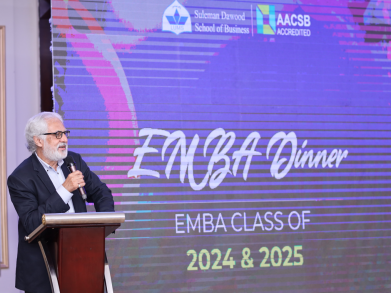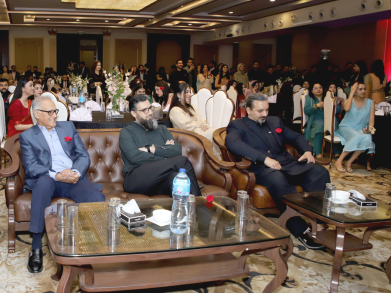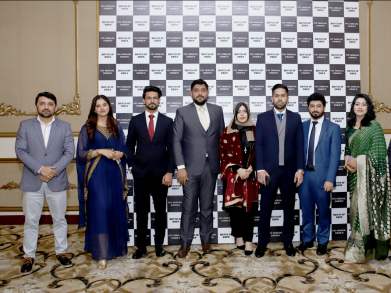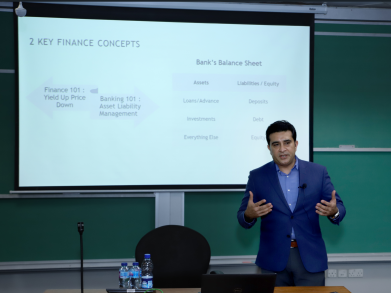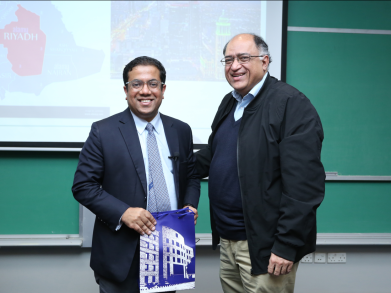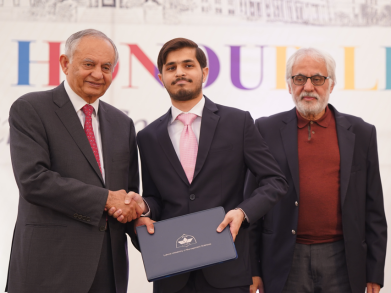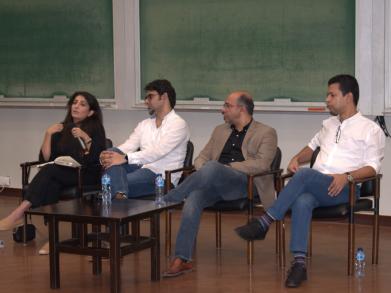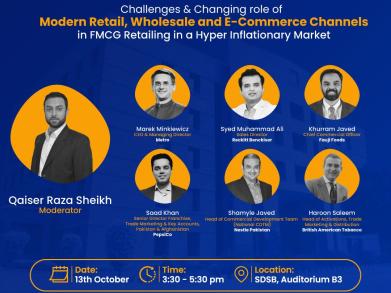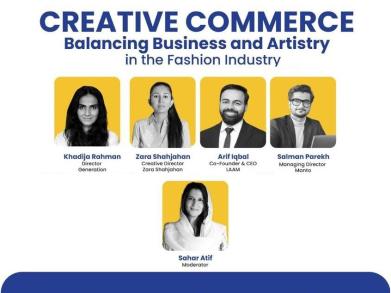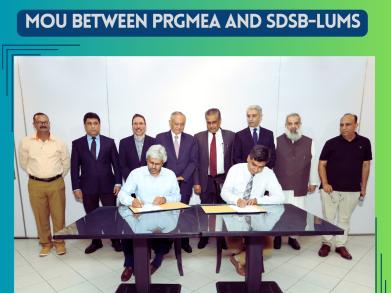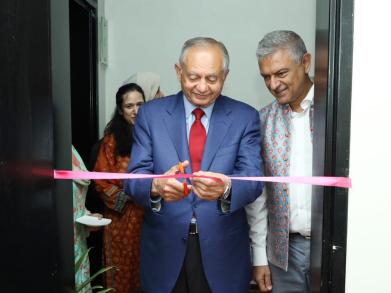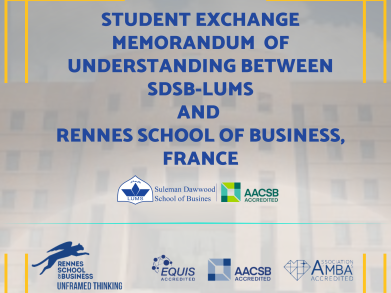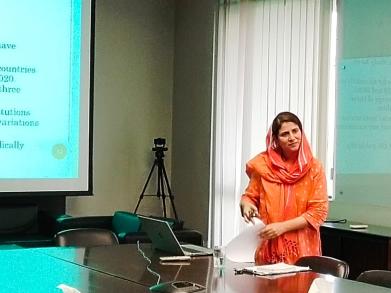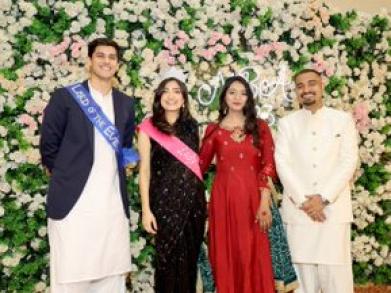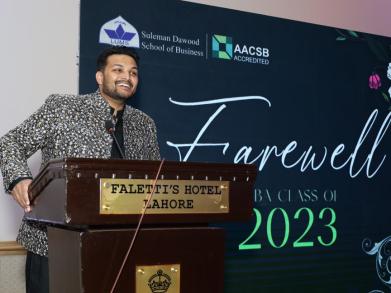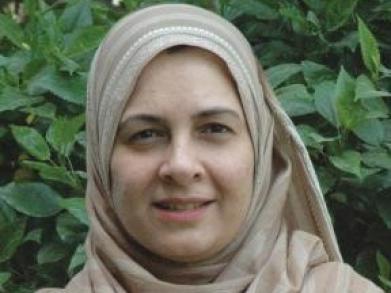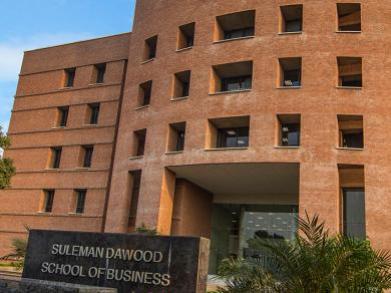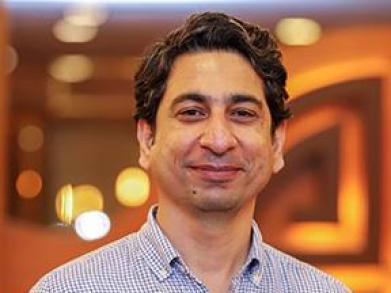SDSB Speaker Session: Exploring EU Funding Opportunities for Projects in Pakistan
On Friday, 18 April 2025, SDSB-LUMS had the pleasure of hosting a session titled “EU Funding Opportunities for Projects in Pakistan”, conducted by the Trade and Investment Office of the Embassy of Pakistan in Madrid. The event brought together two distinguished experts from the Finnova Foundation—Mr Juan Manuel Revuelta, Managing Director, and Mr Juan Viesca, Director of European Funds—for an in-depth discussion on navigating the European Union’s funding landscape.
The session offered faculty, researchers, and entrepreneurial professionals at LUMS an invaluable opportunity to understand the mechanisms, priorities, and accessibility of EU funding for innovation-driven projects, particularly those relevant to Pakistan’s development needs.
With an extensive track record in European funding, innovation, and policy advocacy, Mr Revuelta shared strategic insights into EU-supported programmes and the foundational role of innovation in securing competitive funding. As CEO of the Finnova Foundation and architect of the European Commission’s Startup Europe Awards—now spanning 18 countries—he emphasised how collaboration, innovation ecosystems, and alignment with EU priorities are critical for successful project bids.
Mr Revuelta also drew extensively on his leadership experience across more than 100 EU co-funded projects, showcasing a wealth of practical knowledge in navigating the intricacies of European funding mechanisms. He outlined the essential steps Pakistani stakeholders—whether academic institutions, startups, NGOs, or government bodies—can take to engage with the EU successfully, calls for proposals. These included aligning project objectives with broader EU priorities such as digital transformation, sustainability, and social innovation, and ensuring compliance with the technical and administrative requirements of EU funding programmes.
Mr Revuelta highlighted that simply having a strong project idea is not enough. Instead, he said the critical role of strategic communication and lobbying is in building visibility, trust, and influence within European institutions. For projects with ambitions to scale across borders, he advised incorporating stakeholder mapping, public-private partnerships, and long-term impact planning into the proposal narrative.
He further stressed that innovation should not be siloed but rather integrated into ecosystems that bring together government, academia, civil society, and industry. By adopting this ecosystemic approach, Pakistani organisations can position themselves as relevant and reliable partners within the EU’s innovation landscape—thereby increasing their chances of securing competitive funding and fostering meaningful, transnational collaborations.
Mr Viesca, an expert in European regional development policy and former Director General for Projects and European Funds at the Valencian Ministry of Finance, offered practical guidance on structuring proposals, understanding ERDF (European Regional Development Fund) frameworks, and aligning with regional innovation strategies such as RIS3. Drawing on over eight years of experience at the European Commission in Brussels, Mr Viesca shared lessons on bridging academia and enterprise through EU-backed technology transfer schemes.
Mr Viesca also addressed the common challenges faced while developing and evaluating funding proposals, offering attendees a realistic yet encouraging view of the EU funding landscape. He provided guidance on crafting proposals that resonate with evaluators. He stressed the importance of clarity in problem articulation, the alignment of project objectives with EU strategic priorities, and the need for measurable, sustainable impact.
He explained that successful proposals typically demonstrate technical feasibility and strategic relevance, linking local challenges with broader European goals such as digital transition, green innovation, and inclusive growth. Additionally, he shared insights into common pitfalls, such as weak stakeholder engagement, vague impact metrics, or underdeveloped dissemination plans, which can undermine even well-intentioned applications.
Mr Viesca’s authorship of key publications such as The European Union on the Internet and Entrepreneurship in the Digital Age also lent additional weight to his guidance. These works have made complex topics related to EU institutions and funding frameworks more accessible, particularly for early-career researchers, entrepreneurs, and development practitioners. As such, his advice resonated strongly with newcomers and experienced professionals, bridging theory and practice in an engaging and applicable manner.
The session concluded with an engaging Q&A, where participants explored real-world application scenarios, institutional collaboration models, and future opportunities for Pakistani organisations to participate in EU-led initiatives.
As part of the SDSB Speaker Series, this session highlighted LUMS’s commitment to global engagement and knowledge exchange. It provided attendees with a roadmap to European funding frameworks and sparked conversations around international partnerships that can catalyse innovation and impact in Pakistan.




